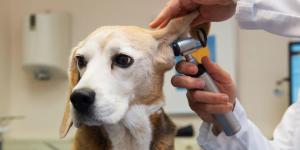Common Health Issues of the Cavalier King Charles Spaniel



Animal file: Cavalier King Charles Spaniel
Many breeds now popular as companion animals first began as working dogs. Although developed from the earlier hunting dog known as the King Charles Spaniel, the Cavalier King Charles Spaniel was created by breeders for their looks and companionship. In fact, they were created to resemble the dogs in paintings of the late King Charles II. The project was a success and has resulted in a small and manageable dog with an active personality and cheerful temperament. Unfortunately, as is often the case with selective breeding, certain health issues are more likely to proliferate with this dog.
At AnimalWised, we look at the most common health issues with the Cavalier King Charles Spaniel. We also show you what you can do to manage such potential health problems and what lifespan you can expect for your canine.
Syringomyelia in the Cavalier King Charles spaniel
When we discuss the common diseases of the Cavalier King Charles Spaniel, it is essential we mention syringomyelia. This is one of the most painful hereditary pathologies that exist. It occurs when the size of the skull is too small to contain the brain mass correctly, causing what is known as chiari-like malformation (CLM). It results in an alternation of the cerebrospinal fluid movement.
Syringomyelia in Cavalier King Charles Spaniels is usually first detected when we see the dog start scratching at the back of their head. This is because the brain crowds this area. Other symptoms include a reluctance to jump and they may even develop some ataxia if neurological disorders develop. Surgery is possible, but in most cases, symptom management is the most common form of treatment.
As mentioned in the BBC documentary Pedigree Dogs Exposed, it is estimated that syringomyelia affects 33% of dogs belonging to this breed and causes them terrible pain, as well as neurological damage. Since it is a genetic disorder, the limited gene pool of Cavalier King Charles Spaniels makes them more likely to develop the condition.
Cardiac problems
The Cavalier King Charles Spaniel is at increased risk for heart disease, primarily degenerative mitral valve disease that eventually leads to heart failure. In the most severe cases, it causes congestive heart failure. Mitral valve degeneration cannot always be treated surgically, which is why pharmacological treatments accompanied by regular veterinary follow-ups are generally used to stabilize the patient.
Heart failure in dogs occurs when their heart does not have the ability to pump blood throughout the body. This leads to serious repercussions in the dog's whole organism. If left untreated, the Cavalier King Charles Spaniel can cause congestion in various parts of the body, such as the lungs or abdomen. Although heart failure is usually a hereditary disease of this breed, it can also be caused by the heartworm parasite.
Due to a genetic predisposition, after 5 years of age, half of Cavalier King Charles Spaniel dogs experience a heart murmur. This rate becomes more likely as they age and the murmur is likely to worsen.

Ocular problems
The Cavalier King Charles Spaniel is also predisposed to suffer from various eye problems, the most frequent being the following:
- Nystagmus: an eye disease caused in the first instance by alterations in the nervous system. A dog suffering from nystagmus will have an involuntary and constant movement of the eyeballs.
- Retinal dysplasia: this eye disease develops progressively, slowly causing the structure of the retina to be defective, directly interfering with the quality of vision.
- Microphthalmia: it is a congenital defect, i.e. it will be observed from birth, and results in one or both eyeballs being smaller than normal.
This breed of dog can also inherit canine cataracts, which are actually a clouding of the eye's lens, preventing light from being properly projected onto the retina. For more possible ocular diseases in Cavalier King Charles Spaniels, take a look at our article on common eye problems for dogs.
Ear problems
The ear is another potential weak point in a Cavalier King Charles Spaniel's health. There are various alterations to the ear which can cause problems with the dog, the most common being the following:
- Hearing loss: although hearing loss is a common health problem for Cavalier King Charles Spaniels, it usually only occurs unilaterally, i.e. in one ear and not the other.
- Deafness: hearing loss can present with varying degrees of severity, even resulting in complete deafness in the dog.
- External otitis: otitis in dogs can affect any breed, but does so to the Cavalier King Charles Spaniel especially. It is a general term for inflammation normally in the outer ear or the most superficial structures of this organ and can have various causes.
Preventing health problems in the Cavalier King Charles Spaniel
According to Simon Swift, a cardiologist at Liverpool University, the fact that this breed has such a common hereditary predisposition is due to the breeding of Cavalier King Charles Spaniel dogs during the 1960s and 70s[1]. The dogs used in these breeding schemes had the disease and they “had many babies and that was the main reason why the diseases spread so quickly”, he explained.
Although this type of dog, due to genetic predisposition, presents a greater risk of suffering from the diseases that we have shown, as well as other less frequent ones, the truth is that we are talking only of a predisposition. It is not a guarantee they will suffer one or more of these problems. It is helpful to study the genealogical tree of any dog belonging to this breed before adopting or raising them. This will help ensure we do not promote the spread of these diseases once again.
Although a dog of this breed is not bound to suffer these health problems, we must take them to the vet every 6 months for regular check-ups and prompt detection any of these common diseases of the Cavalier King Charles Spaniel.
If you do adopt an individual of this breed, perhaps you will be looking for ideas on names to call you Cavalier King Charles Spaniel.

What is the average Cavalier King Charles Spaniel lifespan?
Despite the Cavalier King Charles Spaniel being more prone to certain health problems, it doesn't mean they can't live a full and happy life. Problems such as cataracts can develop, especially in older dogs, so we should know they will need different types of care as they age.
Provided the dog is adopted from a responsible breeder and proper veterinary care is followed, the Cavalier King Charles Spaniel can make a great companion dog that is also in excellent health. If this happens, they can have a life expectancy of between 9-14 years, with some individuals living even longer.

This article is purely informative. AnimalWised does not have the authority to prescribe any veterinary treatment or create a diagnosis. We invite you to take your pet to the veterinarian if they are suffering from any condition or pain.
If you want to read similar articles to Common Health Issues of the Cavalier King Charles Spaniel, we recommend you visit our Prevention category.
1. Swift, S. (2011). Heritability of premature mitral valve disease in Cavalier King Charles spaniels. Veterinary Journal, 188(1), 73-76.
https://pubmed.ncbi.nlm.nih.gov/20347358/







